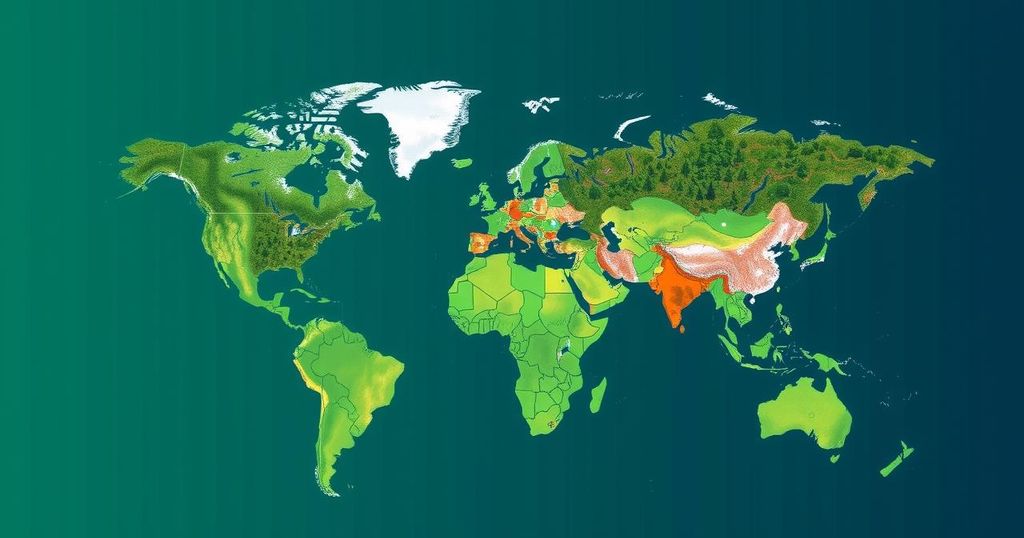Global Elections Signal Declining Commitment to Climate Action
The 2024 election year worldwide has revealed a troubling decline in commitment to climate action, despite worsening climate conditions. Political victories for populist leaders, including Donald Trump and right-wing parties in Europe, underscore the diminished priority for climate advocacy, even as catastrophic climate events escalate. The recent COP29 summit further highlighted frustrations with the lack of decisive action or progress in climate negotiations.
The recent global election year has exhibited a concerning trend regarding the diminishing commitment to addressing the climate crisis amidst escalating environmental disasters. With approximately half of the global population participating in elections, notable victories have been seen for political figures such as Donald Trump, who labels the climate crisis as a fabrication, and the rise of climate-skeptic politicians within the European Union. Catherine Fieschi, an expert in European politics, noted that the elections have resulted in significant losses for climate advocacy, despite the increase in climate emergencies.
As the world confronts possible record-high temperatures amidst floods and heatwaves impacting diverse regions, climate issues have taken a backseat in election discourse. The focus has shifted to concerns over inflation and energy prices, with the Green New Deal viewed by some as a threat rather than a solution. Although climate awareness peaked about five years ago, the combination of geopolitical conflicts, economic challenges, and the rise of populist leaders has contributed to a decline in public prioritization of climate action.
In Europe, right-leaning parties that dismissed climate action as exorbitant have succeeded in elections, while in the United States, Trump’s explicit commitment to reversing environmental regulations led to his victory over Kamala Harris. Although pockets of hope remain, such as the Labour Party’s success in the UK with a focus on clean energy, the overall sentiment suggests a waning global momentum to combat rising temperatures, countered by scientific warnings over missed climate targets and increasing emissions.
The recent COP29 climate summit added another layer of concern, as it was notably attended by fewer world leaders, indicating an apparent lack of urgency toward climate negotiations. The response from environmental activists and leaders underscored frustrations with the lack of progress in reducing emissions, as nations like Azerbaijan touted oil and gas as divine gifts. The summit reinforced a prevailing sentiment of skepticism regarding the sincerity of their climate commitments, particularly from influential polluting nations.
Acknowledging that this year has seen advancements in renewable energy, experts stress that complacency is no longer an option amidst the impending political shifts that may further diminish climate action. Henceforth, there’s a critical need for immediate, unified action to combat climate change, given the rapid progression towards irreversible environmental damage.
The article addresses the significant political changes occurring globally in 2024, which has been dubbed the “biggest election year in human history” by the United Nations. These electoral shifts have revealed a persistent decline in commitment to tackling climate change, even as climate-related disasters become increasingly common. The article discusses the juxtaposition of political success for climate skeptics, especially in light of a backdrop of economic challenges and geopolitical tensions, which has led to reduced public prioritization of climate action in many countries.
In conclusion, the current global political landscape signifies a troubling retreat from prioritizing climate action, exemplified by electoral successes of climate-skeptic leaders and a diminishing focus on climate issues amid pressing economic concerns. The recent COP29 summit reflected the precarious state of climate negotiations and the disillusionment felt by advocates. There exists an urgent need to reignite global momentum toward effective climate policies, as the consequences of inaction become increasingly severe with time.
Original Source: www.theguardian.com




Post Comment